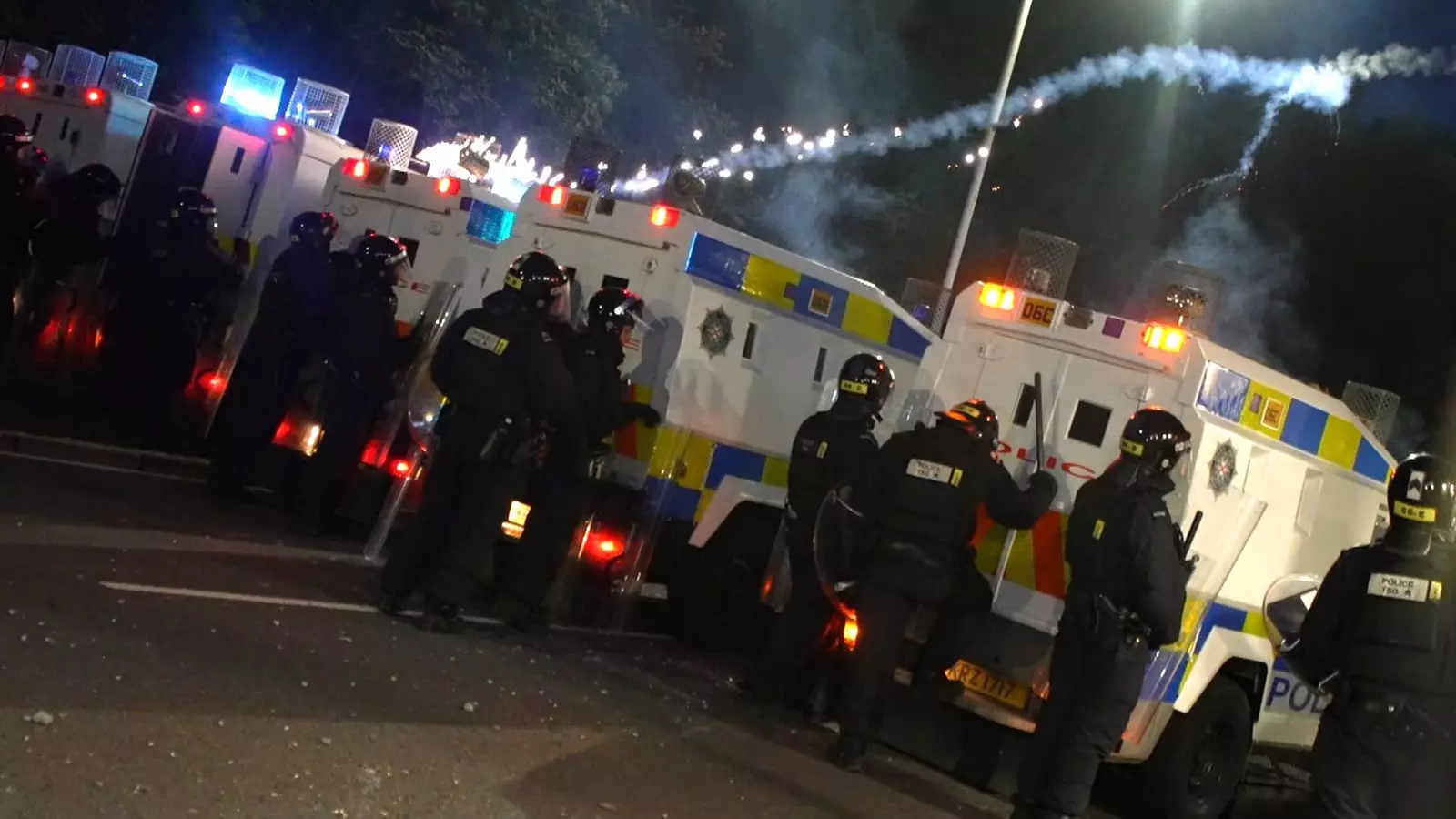What began as a protective response to an alleged crime in Ballymena has spiraled into a chaotic manifestation of societal fractures. The escalating violence in Northern Ireland, marked by the firebombing and aggressive protests, is a stark reminder of the unresolved tensions lying beneath the surface. It is disheartening that such senseless aggression is directed not only at law enforcement but also at innocent community members—families, women, and children, who are left bearing the brunt of this turmoil. As reports of riots spread to Portadown and beyond, it begs the question: are we witnessing a reflection of societal decay rather than isolated incidents of anger?
The Complexity of Violence
The unrest sparked by the arrest of two 14-year-old boys accused of sexual assault has unearthed deeper issues of race and identity. It seems that societal discontent has found its target in those who merely share the same geographical footprint but differ in ethnicity. As a center-left liberal, it is disheartening to see the flames of hatred ignited by this incident, a reflection not just of personal failings, but of a collective societal failure to address the undercurrents of racial tension and bigotry that continue to plague us. We must scrutinize the motivations driving such actions—are we facing an outbreak of genuine outrage, or is it merely an expression of deeper-seated intolerance?
Political Responses and Community Vigilance
Lamentably, political rhetoric often lacks the empathy and understanding necessary for reconciliation. Michelle O’Neill’s condemnation of the violence rightly underscores its horrific nature; however, it needs to transcend mere commentary. It is imperative for leaders to engage with communities on a granular level, to understand the widespread anguish that exists and to devise robust strategies for healing rather than merely restoring order. The influx of reinforcements from Scotland is a temporary band-aid, addressing symptoms rather than root causes. This, in itself, implies a failure of local governance to sufficiently address the grievances of its people.
The Human Element of Policy
The police have found themselves at the crossroads of this mayhem, with 63 officers injured while facing the brunt of civilian violence. Chief Constable Jon Boutcher’s vow to track down the “bigots and racists” responsible feels like an incomplete solution. Shouldn’t the focus be on creating forums for dialogue rather than pursuing punitive measures alone? The real challenge lies in countering the ideological notions that fuel this discord. An investment in community programs, open dialogues about race, and inclusive policies could foster a culture that discourages violence before it manifests.
The Path Forward
Ultimately, these recent events serve as a clarion call for introspection and action. It is essential for each leader, community member, and public servant to reflect on how we can promote mutual understanding and deter hatred. The unrest in Northern Ireland is not merely about the present incidents; it symbolizes a pivotal moment that can either drive us further apart or pull us together toward a more inclusive society. While hostility burns brightly in the short term, it is our collective responsibility to fight the fires with perseverance, understanding, and a commitment to change.



Leave a Reply